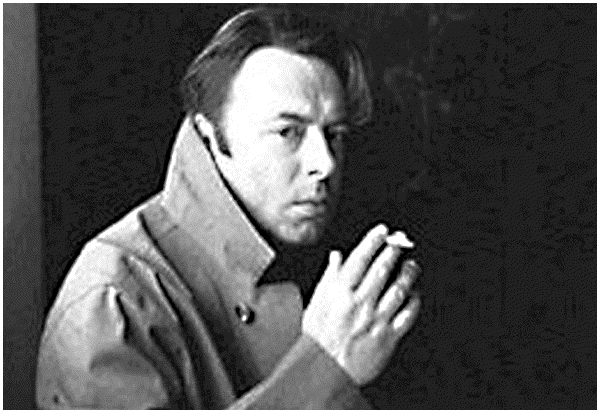Magazine Writing 2011
Compiled by the American Society of Magazine Editors
Sid Holt, Editor
(Columbia University Press)

Michael Hastings offers a close-up look at Gen. Stanley McChrystal, Obama's man in Afghanistan, and no matter what you think of that war, you become here part of the team keeping us there. William Giraledi takes us on the last journey of his father, on a motorcycle, in the back country of Pennsylvania, including the fatal turn that killed him. John Jeremiah Sullivan gives us a tender picture of Andrew Lytle, the last survivor of the Southern School of writing (Penn Warren, Allen Tate, Stark Young) --- Lytle being an old curmudgeon who could drive you bats or fill you with affection.
Michael Paterniti takes us across thirteen time zones to visit with Mr. Chen. He is the self-proclaimed "suicide catcher" on the Nanjing Yangtze River Bridge, claims to have saved 174 people from throwing themselves into the water (or onto the mud-flats) below.
When we get another of these "The Best of..." books, our usual question is "sez who? Why in the hell should anyone (editors included) know better than anyone else?" Our worst fears are always confirmed when we get another volume edited by the Professional Famous Writer who can always manage to worm herself into the collection: Joyce Carol Oates. We have found some of her worst tucked away in "Some of the Best."
But as I wandered around The Best American Magazine Writing I found myself pleasantly surprised ... no, I take that back ... I found myself entranced. The writing, at least ninety per cent of it, showed journalism at its best, from the pages of the likes of The New Yorker, Harpers, The Paris Review, Texas Monthly, The Atlantic, Mother Jones, Texas Monthly.
And Vanity Fair, with that old curmudgeon, Christopher Hitchens, writing with tartness and a fair amount of compassion (for himself), now caught with cancer of the esophagus, looking at it (and himself) with his practiced, cynical eye, managing to win our hearts --- all the while not blotting out his own feelings of despair: observing (for example) the bugaboos, one "confronting one of the most appealing clichés in our language,"
- People don't have cancer: they are reported to be battling cancer. No well-wisher omits the combative image: You can beat this. It's even in the obituaries for cancer losers, so if one might reasonably say of someone that they died after a long and brave struggle with mortality.
"Myself," he says, in typical Hitchenesque reversal, "I love the imagery of struggle. I sometimes wish I were suffering in a good cause, or risking my life for the good of others, instead of just being a gravely endangered patient." He then goes on to report, with benign amusement, the bitter I-told-you-sos and you-should've-known-better from those have been offended by his wonderful discourses on the pleasures of atheism.
This is a fair-sized paper-back, over five-hundred pages, with twenty-four essays, reports, interviews, articles ... and even one poem. Of course, they can't all be fabulous, and a few make one squirm: the poem about the sinking of the Deepwater Horizon reminded me that political poetry is best left to the meister-singers in the coffee-houses. A bit on LeBron James (who he?) and two blogs on another someone named Kanye West who, thank god, I have managed to miss knowing about until now.
This is that part of the celebrity noodling in the daily press that drives many of us to drink (or to sleep). There's an obnoxious squib on Joan Rivers, one that made me set aside the book for awhile after reading "And don't start telling me that I shouldn't be saying it. That's the way I do it. I would have been laughing at Auschwitz." Sure, Joan.
But most of this is classic in-depth journalism and sterling reportage. "Autism's First Child" brings us a fine picture of not only the first diagnosed autistic in American medicine, but the loving community where he still lives: Forest, Mississippi, a village that protects, even embraces, their most famous son.
Then there's the story of the art that went into the casket in which they laid poor Andrew Lytle. The author, along with four others, worked on for days, "a cedar coffin, because it would smell good, he said." They buried him with "a bowling-ball bag, and in the bag an extremely excellent bottle of whiskey."
Or, in reprise, Hitchens saying he loves the thought of his being in a battle, but,
- Allow me to inform you, though, that when you sit in a room with a set of other finalists, and kindly people bring in a huge transparent bag of poison and plug it into your arm, and you either read or don't read a book while the venom sack gradually empties itself into you system, the image of the ardent soldier or revolutionary is the very last one that will occur to you. You feel swamped with passivity and impotence: dissolving in powerlessness like a sugar lump in water.
Good journalism should always leave you with some heart. In less than 200 words, Hitchens, the goblin of bad writing, the bane of mindless Baptists, manages to leave us with pictures of "kindly people" bringing a "huge transparent bag of poison," a venom sack:" a precise image that lingers long after the good man himself has melted away.